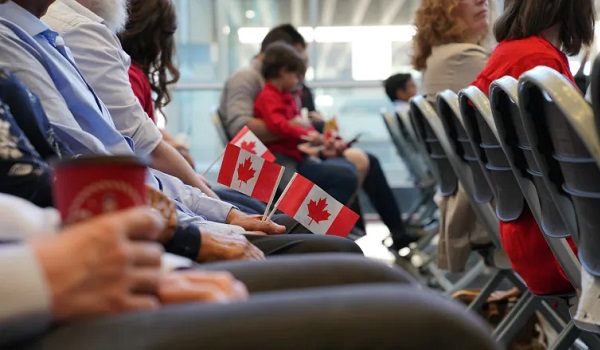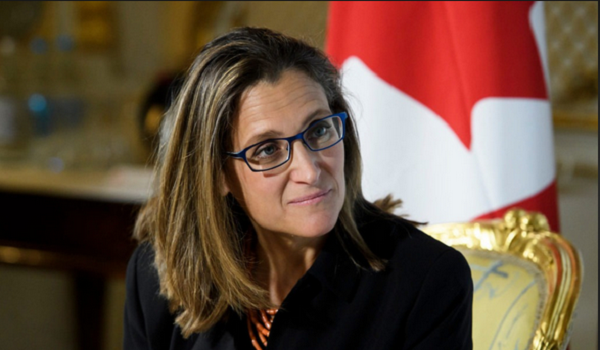Feds lost citizenship rights case for denying children born abroad of Canadian parents automatic citizenship
Tim Setterfield, who works as an engineer for NASA, said he was thrilled when he received the citizenship certificates for his two young American-born daughters last week.
The family was able to celebrate because of a court ruling last month that went against the federal government. The Ontario Superior Court of Justice ruled that Ottawa must hash out new legislation by June 19 to fix the Canadian Citizenship Act, which it ruled unconstitutional for denying automatic citizenship to children born abroad if their Canadian parents were also born overseas.
Setterfield was anxious as he worried the federal government might appeal the ruling. But after the government fought tooth and nail against a group of “lost Canadians” who challenged the “second-generation cutoff” rule — and lost — Ottawa now said it’s not appealing the ruling, handed out by the Ontario Superior Court of Justice just before Christmas.
“This law, as it currently stands, has had unacceptable consequences for Canadians whose children were born outside the country,” Immigration Minister Marc Miller said in a statement this week.
“People who may be impacted by this situation will no doubt have questions about what this means for them and their families. That is why we will continue to assess the impacts of the decision on existing legislation and will provide more information and confirm next steps as quickly as possible.”
Setterfield said “being Canadian is a huge part of my identity.” He was born in Fiji when his father was working in the tropical island nation in the mid-1980s. “I wanted (my daughters) to be able to share that identity and also have the freedom to experience living in my own country if they should choose in the future.”
According to lawyer Sujit Choudhry, who represented the lost Canadians and their families, Ottawa has two options, but both could potentially take months to come through and pose risk of missing the deadline imposed by Justice Jasmine Akbarali to make the citizenship law compliant with the Constitution.
The Liberal government, with the support of the New Democrats, could introduce its own legislation, but that would require hours of committee hearings, unless they manage to move it forward on an expedited basis. Or it could ask for help from the Conservatives, who have already stalled a similar bill for third reading in the House.
Bill S-245 includes an amendment to replace the citizenship cut-off rule with a “substantial connection test” to pass on citizenship if a person can prove such ties with Canada and has been physically present in Canada for at least 1,095 days.
“The (parliamentary) immigration committee met for 30 hours on Bill S-245 and heard from witnesses, including from government witnesses, on the substantial connection test,” Choudhry said in an interview. “So there’s no need, in our view, for those committee proceedings to be run again.
“There already have been committee hearings on precisely the provision that would be in a new bill. The committee process could be a highly abbreviated one. I’m hoping we’ll get clarity from them immediately. The thing is, in the interim, people’s rights are still being violated.”
In 2021, 23 individuals from seven families that have been harmed by the citizenship cut-off rule sued the federal government, arguing the law discriminates against them based on their place of birth, violates their mobility and liberty rights, and disproportionately puts women at a disadvantage when they have to give birth outside of Canada due to circumstances beyond their control.
In the court decision released in December, Akbarali said Canadians who obtained their citizenship by descent are indeed treated differently by the current law and hold “a lesser class of citizenship.”
The judge said the court would declare the Citizenship Act unconstitutional if the government didn’t amend it within six months from the rendering of her decision, and she ordered immigration officials to offer immediate relief to three of the affected families and grant their four foreign-born children Canadian citizenship.
Setterfield, who works at NASA’s Jet Propulsion Laboratory, in said has retained a strong connection with his family in Canada, where his parents and brother still live. While there wasn’t a party or cake to for his two daughters becoming new Canadian citizens, Setterfield did share the news right away with their grandparents in B.C.
“They asked my oldest (who is three years and 10 months), ‘What does it feel like when you get your Canadian citizenship?’ And she said, unprompted, ‘It felt like a birthday,’ ” recalled Setterfield, whose wife is American.
“We’ve been explaining to her that we’ve been fighting for her citizenship for quite some time. I think she grasps it and she strongly identifies as both American and Canadian.”
This article was reported by The Star















